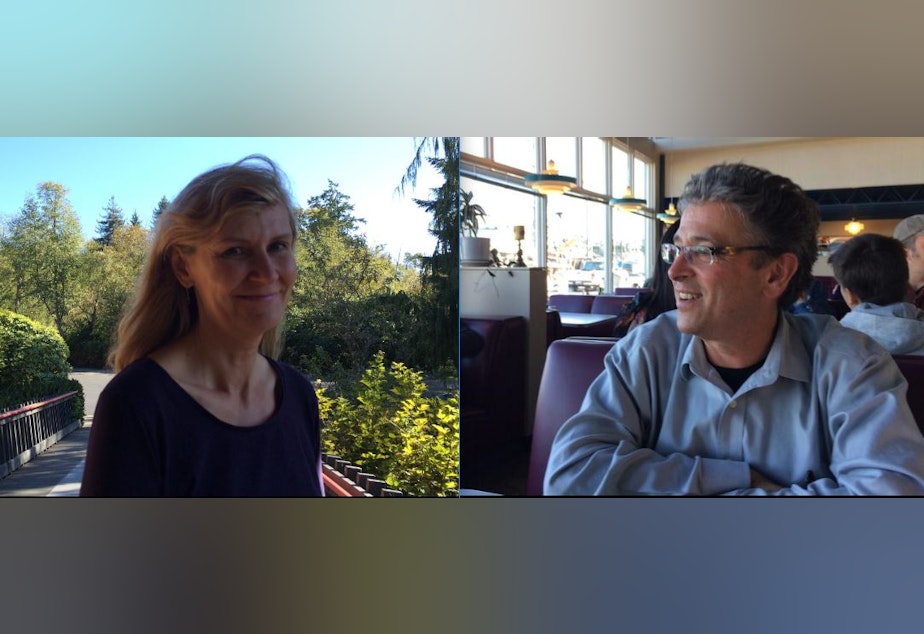Could Idealism Prevail In Seattle's Port Election?

There was public outrage this year when the Port of Seattle agreed to service Shell’s Arctic drilling fleet.
Voters made their voices heard in the August primary by choosing two people who campaigned against the oil giant.
The person elected in November will join four commissioners who make the policy on two of the largest assets in King County: Sea-Tac Airport, which is on a growth tear, and the marine port with its slumping container cargo business.
Bill Bryant is leaving the port position to run for governor. This created an opening on the commission.
The primary winners were Fred Felleman, who won the most votes, and Marion Yoshino.
Sponsored
Felleman said public concern about the direction of the Port is longstanding. “The public had already had a certain level of disdain for the port’s decision making process,” he said. “Even if the port did good things, there was always this sense that there was something under the table going on."
But Yoshino said port observers can take heart: “Right now is a good time to start making some good changes,” she said. Voters have spoken “in a way that’s made a big impact already on the direction that the port’s going and what the port commissioners are thinking is important.”
But the issues that galvanized voters in the primary are gone. Shell has said it will stop exploring for oil in the Arctic. It also said the controversial drilling fleet will not return to Seattle.
So the focus returns to the running of the port, starting with Sea-Tac Airport, which moved 37 million people last year and is on track for double-digit growth this year.
That action affects those who live nearby – including Yoshino, who would be the only port commissioner to live in the shadow of the airport.
Sponsored
Yoshino wants to fix that. She's a transplant from Montana who lives in Normandy Park, southwest of the airport. She has a business degree and is a former economic development officer for the city of Des Moines, Wash.
“We shouldn’t settle for anything less than a clean environment and local jobs,” she said. “They don’t necessarily contradict each other.”
Felleman lives and works on his boat not far from Fisherman’s Terminal, which he said needs protection from urban development so it can remain a working fishing port.
“This is important for the public to know that even though this dock is sometimes vacant, it's still very much alive," he said.
Felleman is a native New Yorker with a master's degree in fisheries biology. He said a pivotal moment for him was the Exxon Valdez oil spill.
Sponsored
“I just said I’ve got to learn from Alaska to make sure it doesn't happen here,” he said at a restaurant in Fisherman’s Terminal. “I just love this place too much.”
There has long been a sense that the Port Commission is where good intentions like these fade away.
Case in point: the Shell decision. In January, the public had only five working days to learn about it and give feedback. Still, commissioners changed nothing about it. The matter did not come up for a formal vote. One commissioner motioned to at least slow things down, but none of the other commissioners would support it.
Commissioner Courtney Gregoire reflected on the public reaction months later. “We lost their confidence and we need to gain that back,” she said.
Gregoire is expected to win her seat again this November election.
Sponsored
Soon-to-be-former commissioner Bryant offered advice to whoever ends up being the newcomer: “You can’t just simply stake out your position and then demand that everyone fall in line,” he said. “You have to be able to work with everyone, understand their interests and build a coalition that gets you at least 80 percent of where you wanted to go.”
Yoshino said she believes other port commissioners will be partners in making change.
“We want to preserve the economic engine that the port is. We don’t want to jeopardize that. But I think we’re going to push that much harder to conserve energy and to look for alternatives,” she said.
The election is Nov. 3.
